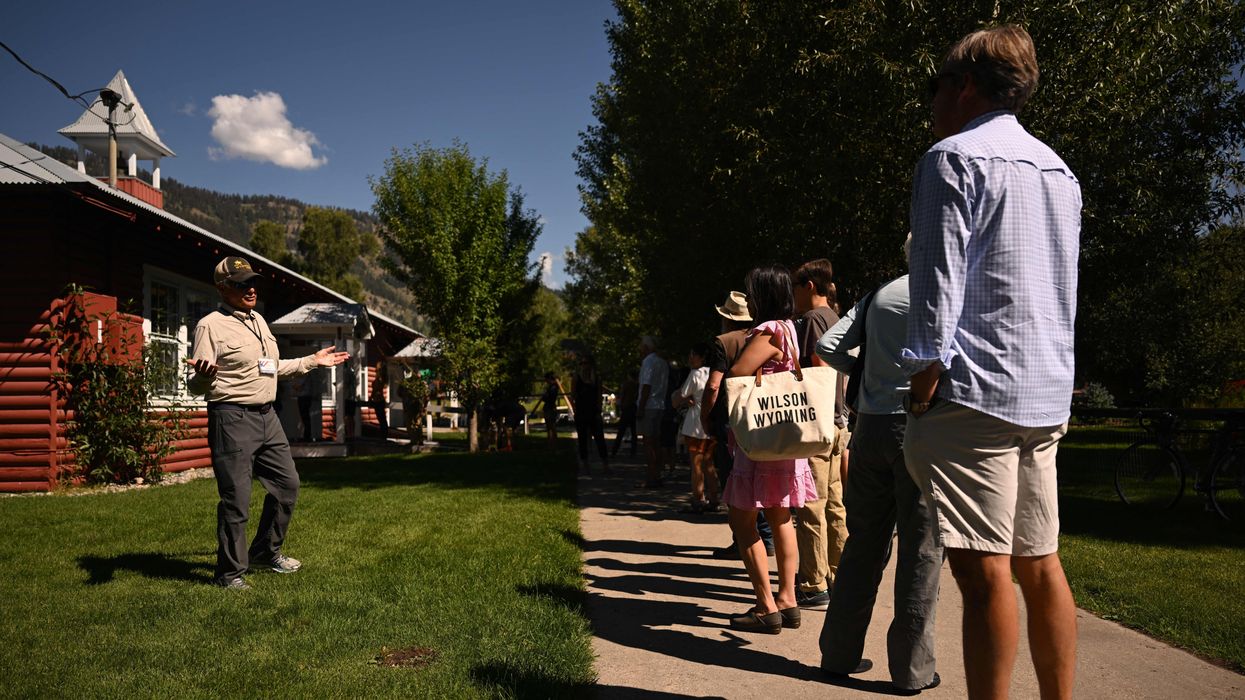There are a number of civic holidays that vary in terms of public awareness. Independence Day, for example, is at the top. Somewhere down the list is Constitution Day (Sept. 17), followed by a newer occasion that happens to be today: National Poll Worker Recruitment Day.
Created in 2020 by the Election Assistance Commission, the day is intended to help officials attract enough people to properly staff offices and voting locations in upcoming elections. With the negative impact of Covid-19 and then threats of violence depressing the number of election workers, a number of groups are stepping up recruitment efforts on behalf of federal, state and local agencies.
While there is little definitive data on the election worker recruitment for the current cycle, media reports and government statements have stressed the difficulty, either actual or anticipated, in ensuring there are enough poll workers to staff voting locations.
According to the EAC, which provides guidance and funding for state and local election officials, 52 percent of jurisdictions reported it was very or somewhat difficult to recruit workers in 2020.
While that is actually a bit of an improvement over 2016, despite the rise of Covid-19, officials and observers believe the added threat of violence is making recruitment in 2022 a bigger challenge.
“According to the Election Assistance Commission, most poll workers, historically, have been over the age of 61, but because that demographic is more susceptible to Covid-19, and the pandemic is still not over, many could still be wary of exposure and less likely to work the polls,” said David Levine, an election security fellow at the Alliance for Security Democracy. “My biggest fear, though, about recruiting enough poll workers is the rise in conspiracy-theory fueled threats to election workers. While the January 6th select committee is doing yeoman’s work to help uncover what transpired on that day, I’m a bit concerned that those paying attention to the committee’s work may have second thoughts about assisting with elections after hearing heartbreaking stories from folks like Ruby Freeman and Shaye Moss. ”
Enter organizations like Power the Polls, which says it helped recruit 700,000 people to work the 2020 elections. Members of the coalition, including corporations and nonprofits, are running recruitment campaigns today to guide volunteers to register in their states.
“Now, more than ever, it’s critical that polls are staffed by non-partisan, well-trained, and objective individuals who will administer a safe, secure, and accessible election,” Kyle Miller, impact associate for Protect Democracy, wrote in an email to his organization’s followers.
Many other organizations are stepping up:
- ALL In Campus Democracy Challenge and the Students Learn Students Vote Coalition announced on Tuesday an upcoming webinar on recruiting college students to work the polls.
- Vet the Vote is trying to enlist 100,000 veterans and military family members to staff election centers.
- The American Constitution Society also emailed its followers, encouraging people to sign up through its portal. “Their recruitment of poll workers and other election administrators who believe in the ‘Big Lie’ and perpetuate disinformation about elections is a direct threat to election security and to our democratic legitimacy,” wrote Jeanne Hrusak, a senior advisor at ACS.
- Business for America, another Power the Polls partner, is actively recruiting election volunteers from its audience, which includes business leaders who want to help improve democracy through nonpartisan reforms and civic engagement.
And there’s Citizen Connect, which, like The Fulcrum, is a project of the Bridge Alliance. Citizen Connect has built a midterm election resource center that provides guidance on voting as well as how to register to work at the polls.
Poll workers take on various responsibilities, such as checking people in when they arrive to vote, ushering voters through the process, managing lines, troubleshooting and other administrative duties. So when jurisdictions lack enough poll workers, they may be forced to close some voting locations. Alternatively, voters may have to wait in very long lines since it takes longer to check people in and move them through the stages of voting. Either way, voters who have to work or take care of other people may find it too difficult to spend the time required to cast a ballot under such circumstances.
The lack of election workers can even be a challenge in the growing number of states that conduct their elections primarily (or exclusively) by mail.
“These states still need to recruit employees who can help with collecting ballots from drop boxes, assisting voters at vote centers or other in-person locations during early voting and on Election Day, checking signatures, separating ballots from return envelopes, and much more,” said Kylee Zabel, communications and research director for the National Vote at Home Institute. “Every state relies on these workers to fulfill essential operations, from when ballots are sent to voters to when the results are certified.”
People interested in volunteering in those states (California, Colorado, Hawaii, Nevada, Oregon, Utah, Vermont and Washington) should contact their local election offices to ask how they can help, said Zabel.



















 Senate Committee on Commerce, Science, and Transportation ranking member Sen. Maria Cantwell (D-WA) (R) questions witnesses during a hearing in the Russell Senate Office Building on Capitol Hill on February 10, 2026 in Washington, DC. The hearing explored the proposed $3.5 billion acquisition of Tegna Inc. by Nexstar Media Group, which would create the largest regional TV station operator in the United States. (Photo by Chip Somodevilla/Getty Images)
Senate Committee on Commerce, Science, and Transportation ranking member Sen. Maria Cantwell (D-WA) (R) questions witnesses during a hearing in the Russell Senate Office Building on Capitol Hill on February 10, 2026 in Washington, DC. The hearing explored the proposed $3.5 billion acquisition of Tegna Inc. by Nexstar Media Group, which would create the largest regional TV station operator in the United States. (Photo by Chip Somodevilla/Getty Images)
